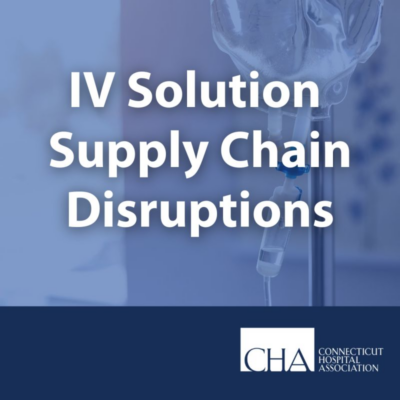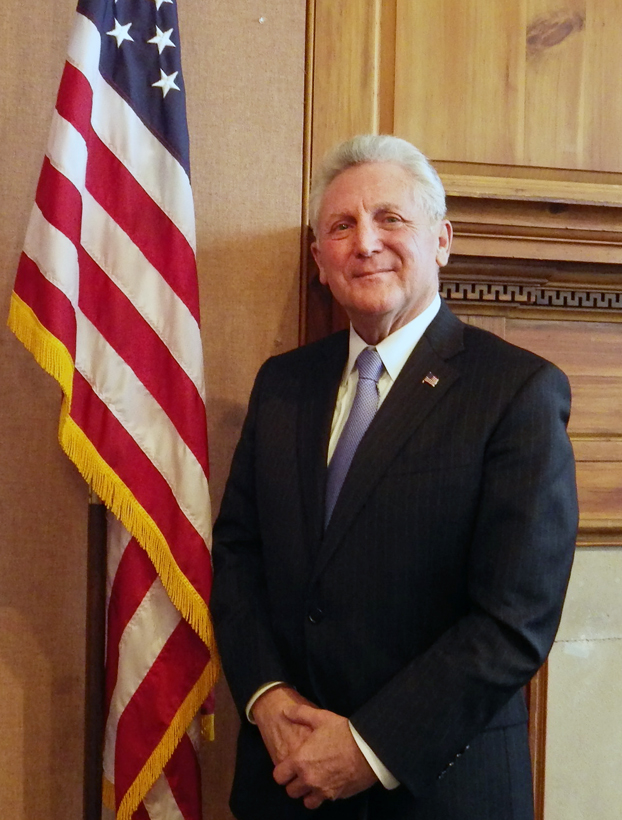
The impact of the destruction of back-to-back hurricanes over the past three weeks is now being felt in Fairfield and Westchester county hospitals as they struggle with a nationwide IV fluid shortage.
Connecticut hospitals and health systems have implemented action plans to manage and conserve critical intravenous (IV) fluids after flood damage from Hurricane Helene forced a Baxter International facility in North Carolina to shut down. And with Hurricane Milton on its heels in Florida last week, the shortage has grown worse.
Baxter’s major manufacturing plant provides approximately 60% — or 1.5 million bags — of the IV solutions used every day in the U.S., making the facility the top supplier of hospital IV fluids and PD solutions in the country.
Baxter announced on Oct. 9 that they do not expect to be back to pre-hurricane production and allocation levels until the end of the calendar year.
“Connecticut hospitals and health systems are taking steps to maximize supplies and minimize disruption to patient care by conserving product and encouraging all healthcare entities that use IV fluids to do the same,” the Connecticut Hospital Association said on its LinkedIn page recently. “CHA continues to monitor impacts on hospital operations throughout the state and is working closely with the Connecticut Department of Public Health and Connecticut Department of Consumer Protection on a coordinated response.”
According to the American Society of Health System Pharmacists (ASHP), there is a national shortage of large-volume parenteral solutions, including but not limited to: sodium chloride injections, Lactated Ringers injection, Sterile Water for Injection, and Dextrose injections. The shortages are due to the effects of Hurricane Helene in North Carolina.
CHA has joined with the American Hospital Association’s (AHA) requests for the Biden Administration to declare a national public health emergency and remove barriers to the global importation of products. AHA also recommends the FDA declare an official shortage, permit flexibility for hospitals and health systems to prepare sterile IV solutions in their own pharmacies, and extend the shelf-life of all sterile IV and peritoneal dialysis (PD) solutions.
In its request, the AHA is asking the Biden administration to take actions to increase the supply of key IV solutions for hospitals. They suggest some of the following actions:
- Have the FDA declare a shortage of sterile IV solutions
- Provide flexibilities to allow hospitals and health systems to prepare sterile IV solutions in their own pharmacies and waive the 1-mile rule so that the hospitals can distribute the products among their facilities without a patient-specific order
They also call for the President to declare a national emergency in order to create the circumstances that will allow for the waivers of Medicare/Medicaid rules or invoke the Defense Production Act, which would require manufacturers to prioritize and accepts contracts for materials necessary to produce the IV solutions.
The American Society of Health System Pharmacists and the University of Utah updated its recommendations for managing the IV fluid shortage on Oct. 11. It states that hospital pharmacies should take the following actions to conserve the vital fluids:
- Implement an organization-specific action plan to conserve IV fluids where possible.
- Establish policies to allow for interchanges between clinically equivalent products when possible.
- Ensure an interdisciplinary team is making rationing decisions using an ethical framework.
- Establish a schedule to regularly assess restrictions and adjust based on current and anticipated supply.
- Communicate changes in shortage status and action plan adjustments to stakeholders as soon as possible.
- Identify vulnerable patients and populations with specific needs, such as pediatric and neonatal patients, and consider specific policies and practices that reserve or prioritize fluid products for their needs.





















